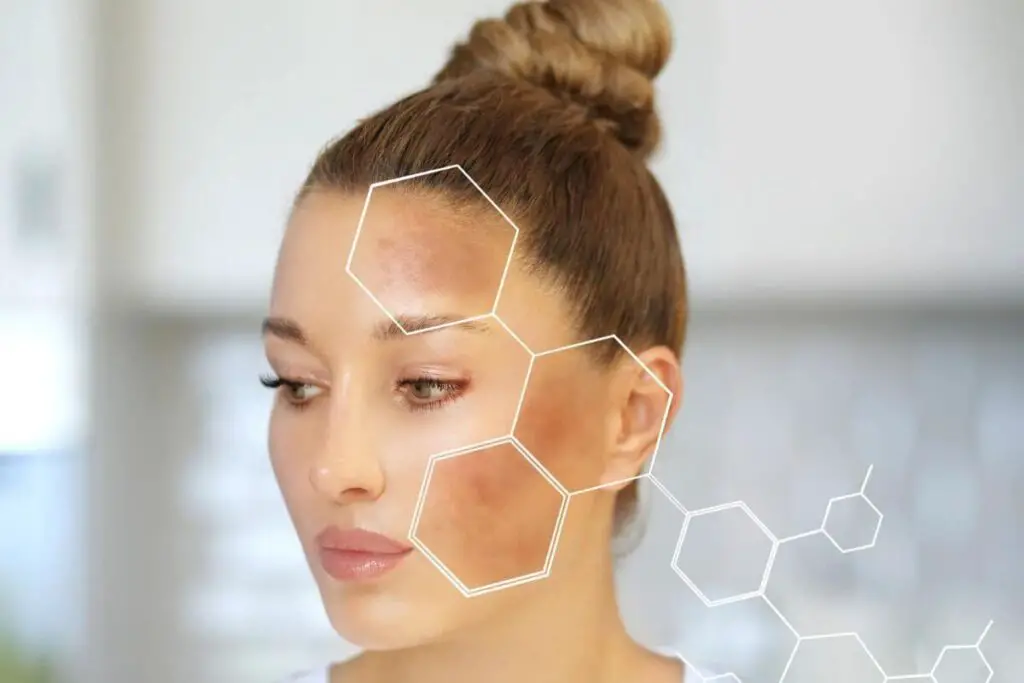The pursuit of lighter skin has been a long-standing cultural and aesthetic preference for many individuals around the world. Various practices and products claim to lighten the skin, and among them, taking baths is a topic of interest. In this exploration, we delve into the factors at play and the science behind whether baths have any impact on the complexion of the skin.
I. The Complex Nature of Skin Color
A. Understanding Melanin
Skin color is primarily determined by the amount and type of melanin present in the skin. Melanin is a pigment produced by melanocytes, and it comes in different forms – eumelanin, responsible for brown and black colors, and pheomelanin, responsible for red and yellow tones.

B. Genetic Influence on Skin Tone
Genetics play a significant role in determining an individual’s baseline skin color. The distribution and activity of melanocytes are inherited, influencing the range of skin tones within a family or ethnic group.
II. The Impact of Baths on Skin Color
A. General Hygiene and Skin Brightness
Regular baths contribute to skin health by removing dirt, oil, and dead skin cells. Clean and well-maintained skin often appears brighter, giving the illusion of a lighter complexion. However, this effect is temporary and more related to cleanliness than an actual change in skin color.
B. Moisturization and Skin Radiance
Proper moisturization during baths can enhance skin radiance. Hydrated skin reflects light better, giving it a healthier and more luminous appearance. This radiant glow may be mistaken for a lighter skin tone.
III. Skin Lightening Agents in Bath Products
A. Skin Lightening Ingredients
Some bath products contain ingredients that claim to lighten the skin. These may include certain acids, like alpha hydroxy acids (AHAs) or beta hydroxy acids (BHAs), which exfoliate the skin, removing outer layers and promoting cell turnover. However, the impact on overall skin tone is limited.
B. Bleaching Agents in Bath Products
Certain products may also contain bleaching agents like hydroquinone. While these substances may lighten specific dark spots or hyperpigmentation, their impact on overall skin tone is a subject of debate, and their use should be approached with caution due to potential side effects.
IV. Sun Exposure and Skin Color
A. Sunlight and Melanin Production
Sun exposure is a crucial factor in skin color. Ultraviolet (UV) radiation stimulates melanocytes to produce more melanin, leading to tanning. Conversely, avoiding excessive sun exposure may prevent darkening of the skin.
B. Sunscreen and Skin Protection
Using sunscreen during and after baths is essential for preventing UV-induced darkening. Consistent sun protection not only maintains skin health but also plays a role in preventing unwanted changes in skin tone.
V. Genetics and Permanent Skin Color
A. Genetic Determinants of Skin Color
While external factors like cleanliness, moisturization, and sun protection can influence the appearance of the skin, the fundamental determinant of skin color remains genetic. Permanent changes in skin color require alterations at the genetic level, which is not achievable through bathing practices.
B. Embracing and Celebrating Natural Skin Tones
The quest for lighter skin has prompted the development of various products and practices, but it is essential to embrace and celebrate natural skin tones. Diversity in skin colors adds to the beauty of humanity, and self-acceptance fosters a positive body image.
VI. Conclusion: Balancing Myths and Realities
In conclusion, taking baths, in itself, does not alter the inherent pigmentation of the skin. While cleanliness and moisturization can contribute to a brighter appearance, any claims of baths leading to permanent skin lightening should be approached with skepticism.
Skin health is multifaceted, involving factors such as genetics, sun protection, and overall skincare practices. If one desires changes in skin tone, it is advisable to consult with dermatologists to explore safe and effective options. However, embracing and celebrating one’s natural skin tone is a powerful affirmation of individual beauty and diversity.
VII. The Role of Diet and Lifestyle
A. Nutritional Impact on Skin Health
Diet plays a crucial role in skin health, and certain nutrients contribute to a radiant complexion. Foods rich in antioxidants, vitamins C and E, and essential fatty acids support skin vitality. However, their influence on overall skin lightening is indirect and gradual.
B. Hydration and Its Effects on Skin
Proper hydration is vital for skin health. Well-hydrated skin appears more plump and vibrant, enhancing its overall appearance. Drinking an adequate amount of water is a simple yet effective step in maintaining skin hydration.
VIII. Natural Remedies and Folk Practices
A. Traditional Practices and Their Efficacy
Throughout history, various cultures have explored natural remedies for skin health. Ingredients like turmeric, yogurt, and honey, often incorporated into bathing rituals, are believed by some to have skin-brightening properties. However, scientific evidence supporting their efficacy is limited.
B. Caution in Using Home Remedies
While natural remedies can be part of a skincare routine, caution should be exercised. Some ingredients may cause irritation or allergic reactions. It’s advisable to perform patch tests and consult with skincare professionals before incorporating new elements into your routine.
IX. The Psychological Aspect of Skin Tone
A. Societal Influences on Beauty Standards
The perception of beauty and skin tone is influenced by societal standards, which can vary widely. Understanding and challenging these standards is crucial for fostering inclusivity and promoting diverse representations of beauty.
B. Embracing Cultural and Personal Identity
Skin tone is an integral part of cultural identity for many individuals. Embracing and celebrating one’s cultural background fosters a positive connection to one’s roots and challenges conventional beauty norms.
X. Professional Interventions for Skin Concerns
A. Consultation with Dermatologists
For individuals seeking significant changes in skin tone or addressing specific skin concerns, consultation with dermatologists is advisable. Medical professionals can provide personalized advice and recommend safe and effective treatments tailored to individual needs.
B. Skin Procedures for Hyperpigmentation
Procedures like chemical peels, laser therapy, and microdermabrasion may be recommended by dermatologists to address hyperpigmentation or uneven skin tone. These interventions should be conducted under professional supervision.
XI. Conclusion: Navigating Skin Health Mindfully
In conclusion, the relationship between baths and skin lightening is nuanced, involving a combination of factors such as cleanliness, moisturization, and the use of specific skincare products. While baths contribute to overall skin health and appearance, expecting dramatic changes in skin tone solely from bathing is unrealistic.
Understanding that skin health is multifaceted, influenced by genetics, lifestyle, and environmental factors, allows individuals to navigate their skincare journey mindfully. Embracing one’s natural skin tone, exploring safe and evidence-based practices, and consulting with skincare professionals are essential steps in maintaining healthy and radiant skin. Ultimately, the journey to beautiful and vibrant skin is unique for each person, and the emphasis should be on self-care and self-acceptance.
Frequently Asked Questions (FAQs)
Can taking baths with certain ingredients lighten the skin permanently?
While certain ingredients claim to have skin-brightening properties, the impact is often temporary. Permanent changes in skin color require genetic alterations, not achievable through bathing practices alone.
Do natural remedies like turmeric or yogurt in baths lighten the skin?
There’s anecdotal support for natural remedies, but scientific evidence is limited. It’s essential to be cautious and perform patch tests, as some ingredients may cause irritation.
Can a specific diet or hydration level lighten the skin?
A healthy diet and proper hydration contribute to overall skin health, giving a radiant appearance. However, the impact on skin tone is indirect, and changes are gradual.
Do professional treatments like chemical peels lighten the skin?
Professional treatments like chemical peels may address hyperpigmentation or uneven skin tone. These interventions should be done under the guidance of dermatologists for safety and efficacy.
Is it possible to permanently change skin tone?
Permanently changing skin tone requires genetic alterations, which are not achievable through skincare practices. Acceptance and celebration of one’s natural skin tone are encouraged.



